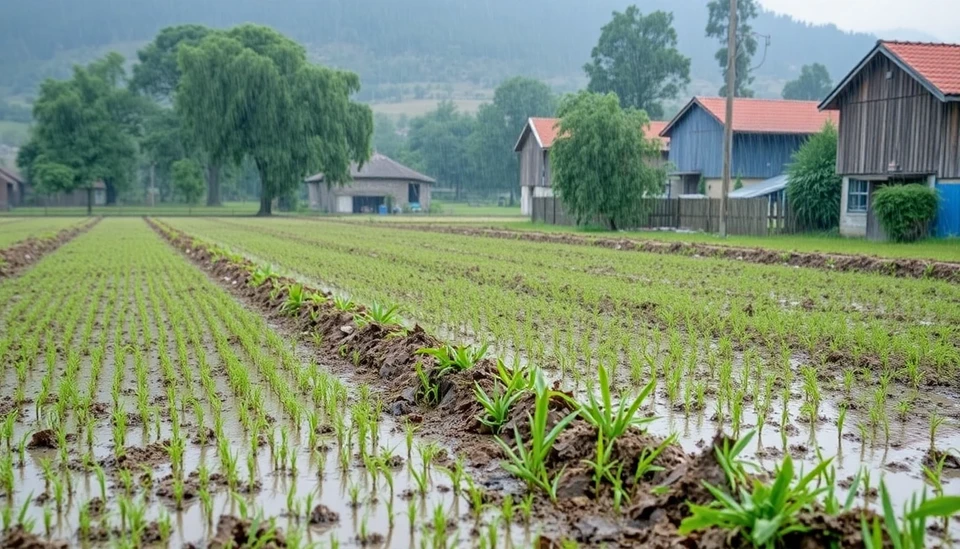
As heavy rains relentlessly batter Europe, the agricultural sector is bracing itself for a significant hit to crop yields and extensive damage to farmlands. The unyielding downpours have raised alarm bells among farmers and agricultural experts alike, as the threat of severe weather looms larger than ever in this pivotal growing season.
Farmers across several key regions in Europe are reporting serious challenges due to the wet conditions, which have made it increasingly difficult to manage crops effectively. In countries like Germany, France, and the Netherlands, where agriculture plays a critical economic role, the effects of this relentless rainfall are expected to be catastrophic.
Crop yields for staple products such as wheat, corn, and soybeans are now under threat, with predictions indicating potentially steep declines in overall output. Experts warn that continued rainfall could lead to waterlogging in fields, a scenario that not only stunts the growth of crops but also increases the likelihood of disease outbreaks among plants that thrive in moist conditions.
The situation is exacerbated by climate change, which has led to increasingly erratic weather patterns across the continent. Scientists point out that this trend is likely to continue, making extreme weather events more commonplace. The current rains may merely be a precursor of the challenges that farmers will face in the years to come.
Adding to the farmers' woes, the agricultural insurance sector is bracing itself for a spike in claims as property and crop destructions escalate. Farmers are left wrangling with the prospect of financial hardship, as many are underinsured against such severe weather disturbances.
Local governments and agricultural organizations are scrambling to respond to the crisis. Initiatives aimed at providing support to farmers, including financial aid and recovery programs, are in development. However, the timeline for relief remains uncertain, as the weather continues to wreak havoc.
Observers caution that the long-term implications of this extraordinary rainfall could reach far beyond immediate crop losses. With food supply chains already strained from previous disruptions, additional setbacks might amplify inflationary pressures in food markets and raise the risk of food insecurity across Europe.
As Europe navigates through this tumultuous weather, the agricultural community is left to ponder how they can adapt to an increasingly unpredictable climate. The call for stronger, more resilient farming practices is louder than ever, urging a shift in how agriculture is approached in the face of climate challenges.
Only time will tell how deep the impact of this weather event will be. Many are hoping for a reprieve as the forecast indicates a potential lull in the rain, but the damage has already begun to unfold, and the agricultural landscape may be forever altered.
#Europe #WeatherCrisis #CropLoss #Agriculture #ClimateChange #FoodSecurity
Author: Megan Clarke




